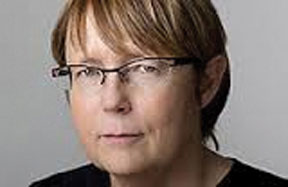
 Ending southern discomfort: Eight ways to fight the AIDS epidemic down south
Ending southern discomfort: Eight ways to fight the AIDS epidemic down south
Megan McLemore
If the United States is serious about ushering in an AIDS-free generation, our nation must end the epidemic in the South. Eight of the 10 states with the highest HIV infection rates are located below the Mason-Dixon Line, as are nine of the 10 states with the highest AIDS fatality rates.
Researchers at the Southern HIV/AIDS Strategy Initiative have identified Alabama, Florida, Georgia, Louisiana, Mississippi, North Carolina, South Carolina, Tennessee and Texas as states where HIV has a disproportionate impact, especially on African Americans. Miami; New Orleans; Atlanta; Jackson, Miss.; Columbia, S.C.; and San Antonio are among the Southern cities with the highest HIV rates.
Almost 60 percent of African Americans live in the South, where they account for approximately 60 percent of new HIV infections—in some states even more. The HIV rate among Black Men Sleeping with Men (MSM) nationwide, including down South, is increasing rapidly.
In Southern states the new-infection rate among Black MSM is four times higher than that of white MSM, with Jackson, Atlanta and Charleston, S.C., accounting for nearly half of new diagnoses among Black MSM in the region.
The following eight issues must be addressed to end the HIV/AIDS epidemic in the South, including in Black communities and among Black MSM:
- Reduce high rates of poverty. Nine of the 10 U.S. states with the lowest median family income—Mississippi, Arkansas, Louisiana, Kentucky, Tennessee, Alabama, West Virginia, North Carolina and South Carolina—are located in the South. “HIV is clearly a disease of poverty, and there is a lot of poverty in the South,” says Michael Saag, director of the Center for AIDS Research at the University of Alabama at Birmingham.
- Increase the proportion of the population that has health insurance. Eight Southern states—Mississippi, Louisiana, South Carolina, Alabama, Virginia, Texas, Georgia and Florida—were among the 26 states challenging the Affordable Care Act in a case that reached the Supreme Court. In its decision, the court gave the states the option not to expand their Medicaid insurance programs for low-income people. As a result, 11 of the 17 Southern states have opted not to expand Medicaid despite having large numbers of uninsured people.
“Southern states resist proven methods of HIV prevention and refuse to provide adequate funding for HIV care and services,” Megan McLemore, a senior health researcher at Human Rights Watch (HRW), said when HRW released the report Southern Exposure: HIV and Human Rights in the Southern United States in 2010. This government in-action has created disastrous outcomes for People Living With HIV/AIDS (PLWHA).
- Strengthen the social safety net and invest in HIV programs. Citing small budgets, many Southern states make little to no investment in the needs of PLWHA or the poor. Instead they rely on federal programs to cover the social, housing and medical needs of PLWHA. McLemore referenced the low tax rates on corporations and high-income residents as contributing to low state tax receipts and sees this strategy as a “self-fulfilling cycle” of using the absence of state revenue to justify the lack of state contributions.
- Improve access to health care. A lack of access to health care creates what McLemore, speaking on a panel at the 20th International AIDS Conference (AIDS 2014) in Melbourne, Australia, called an “environment of risk.” In South Carolina and Mississippi, for example, at least one in four PLWHA lives in a rural area, where transportation is not easily available, which further complicates access to medical treatment.
- Teach comprehensive sex education in schools. McLemore said that many Southern states deny young people “their right to health in-formation and evidence-based education.” Instead, anti-gay messages are often promoted in schools.
People between the ages of 13 and 24 account for 1 in 4 new HIV infections in the U.S., according to the Centers for Disease Control and Prevention. Among young people, people of color have been particularly affected, with young Black MSM now accounting for more new infections—4,800 in 2010—than any other MSM demographic.
- 6. Reduce hostility to-ward LGBT people. The lack of comprehensive sex education in schools is directly linked to the hostility toward members of the LGBT community, who cannot thrive in a homophobic environment where they face stigma on social, cultural and religious levels. At AIDS 2014 McLemore said that unconstitutional sodomy laws, constitutional bans on gay marriages and the teaching of anti-gay messages are all examples of “state-sponsored homophobia.” The continuing bias and prejudices keep individuals from revealing their sexual identity and/or getting tested for HIV, which increases the risk of infection.
- Lower incarceration rates and improve HIV prevention in prisons. The United States has 5 percent of the world’s population but 25 percent of the world’s incarcerated people. The South’s incarceration rate is three times the national average, according to McLemore. Harsh penalties for sex work and drug use contribute to the high number of incarcerated. What’s more, HIV rates among prisoners are 2 1/2 times higher than among the general public. Many people enter the prison system unknowingly infected because of the stigma associated with get-ting tested. Once incarcerated, people can spread HIV through tattooing, sex (both consensual and coerced) and injection drug use.
- Increase the number of syringe-exchange programs (SEPs). The cities in the South with the highest population of injection drug users—such as Miami, New Orleans, Atlanta and Baton Rouge, La.—also have “very limited or no syringe-exchange programs,” said McLemore. For example, New Orleans’ sole SEP operates only on Fridays from 4 to 6 p.m.
April Eugene is a Philadelphia-based writer.


Be the first to comment